
Lớp 8 - Ôn tập môn tiếng Anh học kỳ 2
+ V-
+ Ved/
3
ÔN TẬP THI HKII – TIẾNG ANH LỚP 8
I . The uses of tenses : (caùch söû duïng thì)
1. Caâu khaúng ñònh:
THÌ COÂNG THÖÙC TRAÏNG TÖØ
1. Simple Present -I, We, You, They + Vo
-He, She, It + Vs / es
( Be -> Am/ Is/ Are )
Always, usually, often, sometimes,
seldom, rarely,
every (day, week, year, …)
2. Simple Past
-S + Ved / 2 Yesterday, ago, in (1990),
last (night, week, year,…)
3. Simple Future -I, We + Shall + Vo
-S + Will
Tomorrow, next (week, year,…),
in(2010), …
4. Present
Continuous
-I + Am
-He, She, It + Is + V-ing
-We, You, They + Are
Now, rightnow, at the moment,
while + th/ gian ở hiện tại,
At present, Look !, Listen !
5. Past Continuous
-I, He, She, It + Was
-We, You, They + Were
At (10 a.m yesterday),
While + th/ gian ở quá khứ
6. Present Perfect -I, We, You, They + Have
-He, She, It + Has
Since, for(+th/ gian), just, yet,
already, ever, never, recently,…
7. Past Perfect
-S + Had + Ved/ 3
Before, by the time ,
After, …
2. Caâu phuû ñònh vaø caâu nghi vaán:
THÌ CAÂU PHUÛ ÑÒNH CAÂU NGHI VAÁN
1. Simple Present S + Do + Not + Vo
+ Does
Do + S + Vo … ?
Does (V:ñoäng töø
thöôøng)
2. Simple Past S + Did + Not + Vo
Did + S + Vo … ?
(V:ñoäng töø
thöôøng)
3. Simple Future S + Will + Not + Vo
Shall
Will + S + Vo … ?
Shall
4. Present Cont. S + Am + Not + V-ing
Is/ Are
Am + S + V-ing … ?
Is/ Are
5. Past Cont. S + Was + Not + V-ing
Were
Was + S + V-ing ... ?
Were
6. Present Perfect S + Have + Not + Ved/ 3
Has
Have + S + Ved/ 3 … ?
Has
7. Past Perfect S + Had + Not + Ved/ 3 Had + S + Ved/ 3 … ?
Thì hieän taïi ñôn : +Ves khi ñoäng töø taän cuøng laø S, Sh, Ch, X, O, Z
Ex: He watches T.V every night.
II. Passive Voice: (Theå bò ñoäng)
1. General Formation :(Coâng thöùc toång quaùt)
Active:
( Ved/ 3 = Past participle )
Passive: ( Be: chia cuøng thì vôùi ñoäng
töø chính V
cuûa caâu chuû ñoäng )
1
S + V + O
S + BE + Ved/ 3 +
By O
2. Coâng thöùc theå bò ñoäng cuûa caùc thì:
Teân thì Passive voice
1. Hieän taïi ñôn S + Am/ Is/ Are + Ved/ 3 + By O
2. Quaù khöù ñôn S + Was/ Were + Ved/ 3 + By O
3. Modals
( will/ shall/ can/ may/ must/
would/ should/ could/ might
…)
S + Will + Be + Ved/ 3 + By O
Shall
Can …
4. Hieän taïi tieáp dieãn S + Am/ Is/ Are + Being + Ved/ 3 + By O
5. Quaù khöù tieáp dieãn S + Was/ Were + Being + Ved/ 3 + By O
6. Hieän taïi hoaøn thaønh S + Has/ Have + Been + Ved/ 3 + By O
III. Comparison: ( So saùnh )
1. So saùnh baèng:
Ex: - He is as tall as his friend.
- John drives as carefully as Tom.
2. So saùnh hôn:
Ex: - He is taller than his friend.
John drives more carefully than
Tom
3. So saùnh nhaát:
Ex : - This is the longest river in the
world.
- Spring is the most beautiful
season of
the year.
Short adj/ adv ( Tính töø ngaén/ traïng töø ngaén): ñoïc chæ coù moät aâm tieát.
(Ex: tall, hot, fast, …)
Long adj/ adv ( Tính töø daøi/ traïng töø daøi ): ñoïc coù töø hai aa6m tieát trôû
leân. (Ex: famous, beautiful, carefully, … )
Moät soá ghi chuù trong so saùnh hôn vaø so saùnh nhaát:
1. Tính töø ngaén:
a. Taän cuøng laø moät phuï aâm, ñöùng tröôùc noù laø moät nguyeân aâm
(a, e, I, o, u) -> thì ta gaáp ñoâi phuï aâm cuoái tröôùc khi theâm –ER hoaëc
EST
Ex: Hot -> Hotter -> The hottest ( Noùng)
b. Taän cuøng laø –E thì ta chæ theâm –R hoaëc –ST.
Ex: Large -> Larger -> The largest. ( Roäng)
c. Taän cuøng laø –Y, ñöùng tröôùc noù laø moät phuï aâm thì ta ñoåi –Y
thaønh –I tröôùc khi theâm
-ER hoaëc –EST.
Ex: Dry -> Drier -> The driest. ( Khoâ)
2. Tính töø coù hai aâm tieát : taän cuøng laø –Y, -LE, -OW, -ER thì ñöôïc duøng
nhö tính töø ngaén (töùc laø theâm –ER hoaïc –EST).
Ex: Happy -> Happier -> The happiest ( Haïnh phuùc)
Simple -> Simpler -> The simplest ( Ñôn giaûn)
2
AS + adj/ adv + AS
Short adj/ adv + -ER
+ THAN
MORE + long adj/ adv
Short adj/ adv + -EST
THE +
MOST + long adj/ adv
Narrow -> Narrower -> The narrowest ( Heïp)
Clever -> Cleverer -> The cleverest ( Kheùo leùo)
Moät soá baát qui taéc trong so saùnh hôn vaø so saùnh nhaát:
So saùnh hôn So saùnh nhaát
-Good
-> Better -> The best ( Toát)
Well
-Bad
-> Worse -> The worst ( Xaáu, teä)
Badly
-Much
-> More -> The most ( Nhieàu)
Many
-Little -> Less -> The least ( Ít)
-Far -> Farther -> The farthest ( Xa)
Further -> The furthest
* So saùnh hôn -> So saùnh khoâng baèng:
Ex: - A horse is stronger than a dog. -> A dog is not as strong
as a horse.
- A car is more expensive than a bicycle. -> A bicycle isn’t so
expensive as a car.
- Iron isn’t so precious as gold. -> Gold is more precious
than iron.
IV. The structure: “ It’s + Adj + To inKtive …” ( Thaät laø …)
Ex:a- To lie on the beach all day is wonderful.
It is wonderful to lie on the beach.
b- Speaking English ^uently is di_cult.
It’s di_cult to speak English ^uently.
c- It’s easy to `nd the notice board in the hall.
To `nd the notice board in the hall is easy.
V. Prepositions: (giôùi töø)
( at, in, on, of,for, about, by, up, with, without, …)
Time (Thôøi gian)
1. At + giôø Ex: at 9 o’clock
2. In + naêm Ex: in 1985
+ thaùng in May
+ muøa in Summer
3. On + thöù trong tuaàn. Ex: on Monday
+ thaùng, ngaøy. on September 5th
+ thaùng, ngaøy, naêm. on April 30th, 1975.
4. Since + thôøi ñieåm. Ex: since 1990 ( thì hieän taïi
hoaøn thaønh)
3
S1 + Be + short adj+ -ER + THAN + S2
MORE+ long adj
S2 + Be + Not + AS + adj + AS + S1
SO
To V … + is + adj
V-ing… + is + adj
-> It is + adj + to V
For + khoaûng thôøi gian. for 2 years
5. From . . . to . . . Ex: from 1995 to 2000 ( töø . . . ñeán . . .)
Place (Nôi choán):
1. At + nôi nhoû, heïp Ex: at home, at school.
2. In + nôi roäng lôùn in HCM city, in England, in the
world.
3. -In the middle of (ôû giöõa) - In front of (ôû tröôùc )
-In the centre of (ôû trung taâm) - On the top of ( ôû treân
ñænh)
Manner (theå caùch):
1. By + phöông tieän ñi laïi. Ex: by car ( plane, train, ship . . .)
2 By + O ( bôûi, passive voice) Ex: America was discovered by
Columbus.
3.-On foot ( ñi boä)
Direction – Motion ( Phöông höôùng- Chuyeån ñoäng):
1. In the North ( South, East, West) : ôû phía Baéc ( Nam, Ñoâng, Taây )
2. On the left ( right ) : ôû beân traùi ( phaûi)
3. -From ( töø) - To ( ñeán ) -Into ( vaøo trong)
Some expressions:
-to take part ( in) : tham gia vaøo
- to be interested ( in) : thích, quan taâm
- to check ( in) : ñaêng kyù
- to be fond ( of) : thích
- to be proud ( of) : töï haøo veà
- to remind ( of) : gôïi nhôù veà
- to even ( up) : san baèng ( tæ soá)
- to talk ( about) sth : noùi veà
- to tell ( about ) sth : keå veà
- to look ( at) : nhìn. Ngaém
- to look ( for) : tìm, kieám
- to look ( after) : chaêm soùc
- to be good ( at) : gioûi veà
- to be bad ( at) : dôû veà
- to be afraid ( of) : sôï, e ngaïi
VI. Gerund – InKnitive: ( ñoäng töø theâm –ING vaø ñoäng töø nguyeân
maãu )
Qui taéc chung : thoâng thöôøng hai ñoäng töø caùch nhau bôûi “ TO”.
Ex: She wants to see her friend.
-Advise
-Ask
-Request + O + to V
-Tell
-Beg
Ex: My mother advises me to get up early.
Moät soá ngoaïi leä :
1. Nhöõng ñoäng töø ñöôïc theo sau bôûi “gerund”:
-Keep
-Enjoy
-Finish + V-ING
-Prefer
-Practice
-Mind
Ex: The children kept talking about the acrobats.
2. Nhöõng ñoäng theo sau bôûi “gerund” hoaëc “ to in`nitive”:
-Like
-Love V-ING
-Hate +
-Begin to V
4
-Start
Ex: Do you like reading novels ?
to read
3. Giôùi töø ( in, at, on,of,…) + V-ING
Ex: English people are fond of watching football.
4. Theå truyeàn khieán ( causative form):
-Have + S.O + V ( active)
-Have + S.T + Ved/ 3 ( passive)
-Make + O + V
Ex:- I have my brother repair my bicycle.
- They had their suitcases taken upstairs to their rooms.
- The clown made us laugh a lot.
5. Used to vaø be used to:
- Used to + V : ñaõ thöôøng (ôû quaù khöù vaø khoâng coøn nöõa)
- Be used to + V-ING: quen vôùi.
Ex: - Mr Brown used to take his children to the zoo.
-My mother is used to getting up early.
MOÄT SOÁ ÑOÄNG TÖØ BAÁT QUI TAÉC THOÂNG DUÏNG
St
t
Vo
( Nguyeân
maãu )
V2
( Quaù khöù )
V3
(Quaù khöù
phaân töø)
Nghóa Vieät
1. Be Was / Were Been Thì, laø, ôû
2. Become Became Become Trôû neân
3. Begin Began Begun Baét ñaàu
4. Blow Blew Blown Thoåi
5. Break Broke Broken Ñaäp, phaù vôû
6. Bring Brought Brought Mang ñeán
7. Build Built Built Xaây döïng
8. Buy Bought Bought Mua
9. Catch Caught Caught Baét kòp, ñuoåi
theo
10. Choose Chose Chosen Choïn löïa
11. Come Came Come Ñeán
12. Cut Cut Cut Caét, chaët
13. Do Did Done Laøm
14. Draw Drew Drawn Veõ tranh
15. Drink Drank Drunk Uoáng (röôïu)
16. Drive Drove Driven Laùi xe
17. Eat Ate Eaten AÊn
18. Fall Fell Fallen Teù, ngaõ, rôi
19. Feel Felt Felt Caûm thaáy
20. Find Found Found Tìm thaáy
21. Fly Flew Flown Bay
22. Forget Forgot Forgotten Queân
23. Get Got Got / Gotten Coù ñöôïc
24. Give Gave Given Cho
25. Go Went Gone Ñi
26. Grow Grew Grown Troàng, moïc
27. Have Had Had Coù, duøng côm
28. Hear Heard Heard Nghe
29. Hold Held Held Caàm, naém, toå
chöùc
30. Keep Kept Kept Giöõ
31. Know Knew Known Bieát
32. Learn Learnt/ learned Learnt/ learned Hoïc
5
33. Leave Left Left Rôøi khoûi, ñeå
laïi
34. Make Made Made Cheá taïo, laøm
35. Meet Met Met Gaëp maët
36. Pay Paid Paid Traû (tieàn)
37. Put Put Put Ñaët ñeå
38. Read Read Read Ñoïc
39. Ring Rang Rung Reo chuoâng
40. Run Ran Run Chaïy
41. Say Said Said Noùi
42. See Saw Seen Thaáy, xem
43. Sell Sold Sold Baùn
44. Send Sent Sent Göûi
45. Sing Sang Sung Ca haùt
46. Sit Sat Sat Ngoài
47. Sleep Slept Slept Nguû
48. Speak Spoke Spoken Noùi
49. Spend Spent Spent Traõi qua, tieâu
xaøi
50. Stand Stood Stood Ñöùng
51. Steal Stole Stolen Aên caép
52. Take Took Taken Caàm, laáy, daãn
ñi
53. Teach Taught Taught Daïy hoïc
54. Tell Told Told Keå, baûo
55. Think Thought Thought Suy nghó
56. Understand Understood Understood Hieåu
57. Win Won Won Chieán thaéng
58. Write Wrote Written Vieát
VII. So . . . that …
(quaù … ñeán noãi…)
Ex: Lan was very busy. She couldn’t go to the movies with us.
-> Lan was too busy that she couldn’t go to the movies with us.
VIII. Such . . . that . . .
Ex: a- She is a beautiful girl. Everybody admires her.
-> She is such a beautiful girl that everybody admires her.
b- It was hot tea. I couldn’t drink it.
-> It was such hot tea that I couldn’t drink it.
c- They are interesting books . We want to look at them again.
-> They are such interesting books that we want to look at them again.
IX. Too . . . to
1. Khi cuøng chuû ngöõ:
( quaù . . . khoâng theå . . .)
Ex: a- She ran very slowly. She couldn’t catch the train.
-> She ran too slowly to catch the train.
2. Khi khaùc chuû ngöõ:
6
SO + adj/ adv + THAT + clause
SUCH + a(n) + adj + Noun + THAT + clause
TOO + adj/ adv + TO
Vo
có thể bạn quan tâm
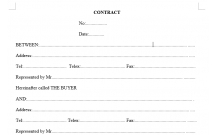
HỢP ĐỒNG XUẤT KHẨU GẠO TIẾNG ANH VÀ TIẾNG VIỆT
6
1.308
421
Mẫu hợp đồng
6
(New)

Đánh giá và so sánh khả năng cung cấp thông tin thuốc của một số CSDL...
37
1.210
317
Kỹ thuật
37
(New)
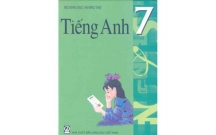
Tiếng Anh Lớp 7
195
1.393
344
Tiếng Anh phổ thông
195
(New)

Bài tập tiếng Anh 7 mới
161
2.378
413
Tiếng Anh phổ thông
161
(New)
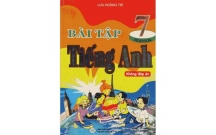
Đáp án bài tập tiếng anh 7
16
1.079
375
Tiếng Anh phổ thông
16
(New)
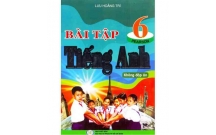
Đáp án bài tập tiếng anh 6
16
857
381
Tiếng Anh phổ thông
16
(New)
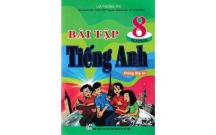
Đáp án bài tập tiếng anh 8
16
1.202
420
Tiếng Anh phổ thông
16
(New)
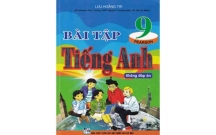
Đáp án bài tập tiếng anh 9
16
1.609
274
Tiếng Anh phổ thông
16
(New)
thông tin tài liệu
Bộ đề thi môn tiếng Anh học kỳ 2 lớp 8
IV. The structure: “ It’s + Adj + To infitive …”
Ex:a- To lie on the beach all day is wonderful.
It is wonderful to lie on the beach.
b- Speaking English fluently is difficult.
It’s difficult to speak English fluently.
c- It’s easy to find the notice board in the hall.
To find the notice board in the hall is easy.
Mở rộng để xem thêm
từ khóa liên quan
tài liệu mới trong mục này
tài liệu hot trong mục này
tài liệu giúp tôi
Nếu bạn không tìm thấy tài liệu mình cần có thể gửi yêu cầu ở đây để chúng tôi tìm giúp bạn!
xem nhiều trong tuần
CHÍNH SÁCH PHÁT TRIỂN: Bài 3 - Lý thuyết phát triển
Tiếng Anh lớp 3 - Đề thi học kỳ 2 trường Tiểu Học Nguyễn Khuyến, Đắk Lắk
Hướng dẫn chuyển Bookmarks từ Firefox sang Chrome
Giải bài tập SBT Tiếng Anh lớp 9 mới Unit 7
Thủ thuật Infographics dành cho người mới bắt đầu làm Marketing
Làm gì để tránh biến chứng bệnh tiểu đường
yêu cầu tài liệu
Giúp bạn tìm tài liệu chưa có
×



